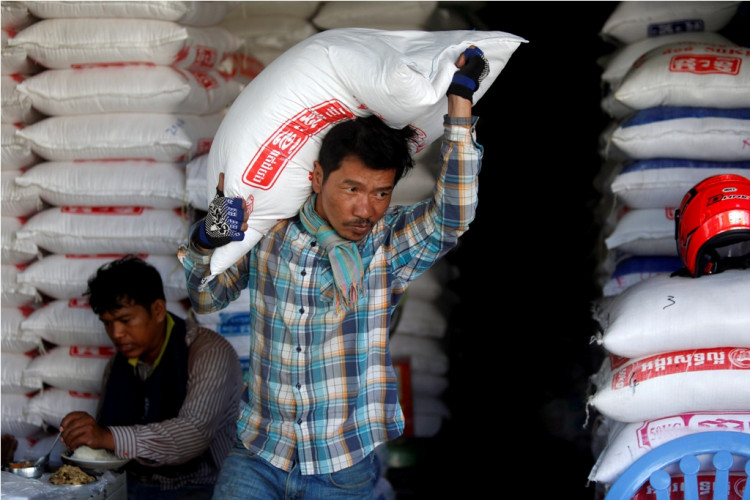Cambodia has countered the European Union (EU) over import tariffs imposed in January, with the Asian country challenging the bloc at the European Court of Justice. The Cambodian Ministry of Commerce has referred to the EU's move as a "weapon to kill Cambodian farmers."
According to Reuters, the Cambodian Rice Federation said on Thursday the EU's statements that the tariffs were imposed to safeguard the eurozone's local farming industry was not based on questionable activities by Cambodian exporters.
The federation said the bloc imposed tariffs based on data that were collected through flawed systems and generalizations of import issues from other Southeast Asian countries. The EU previously said it seeks to protect the interests of its local farmers.
Despite inadequate EU countries backing the rice tariffs, the European Commission decided to push through with its decision. This has caused a stir among Cambodian farmers and local advocacy groups.
In its appeal against the tariffs, the CRF said, "The reintroduction of import duties is detrimental to the Cambodian economy and its industry, but above all to its people." The federation added that the move was a "misapplication of EU law."
The bloc stressed that Indica rice imports from Myanmar and Cambodia increased significantly in five years. According to the Commission, this resulted in a decline in revenue among Italian rice producers.
Meanwhile, relations between the EU and Cambodia continue to fire up as the western bloc kicked off monitoring of the Asian country due to claims of human rights violations. The engagement started in February and is expected to last for six months.
The European Commission said the monitoring period targets to improve labor conditions for Cambodian workers. The issue stemmed from the emergence of evidence that allegedly involved violation of core labor and human rights in the Asian country. If further proof of the allegations emerges, analysts noted that the Cambodian government may lose preferential access under the Everything-but-Arms (EBA) trade deal that it shares with the EU.
After six months of cooperation with Cambodian authorities and involved parties, the EU is expected to allow for another three months to come up with a report based on the monitoring results.
In line with the human rights issue, business groups in the EU that focus on apparel and footwear have called on the Cambodian corporate realm and government to improve its labor environments and enhance support for the workforce.
Cambodia's Prime Minister Hun Sen has announced a set of economic reforms that aim to curb potential losses from the impending abortion of the country's trade deals with the EU. Economic experts noted that the PM's reforms suggest that it is looking to increase cooperation with China if the EU turns away.





